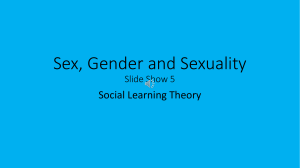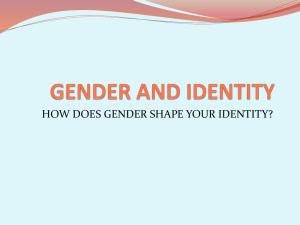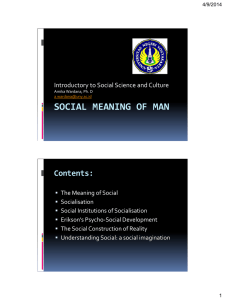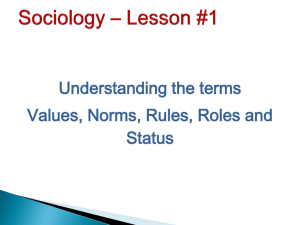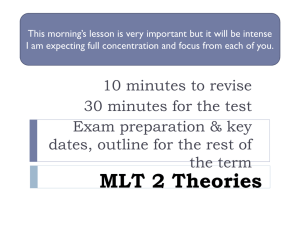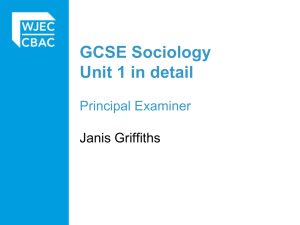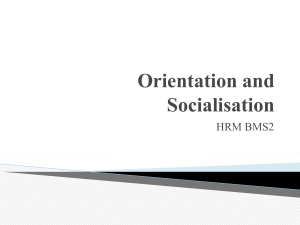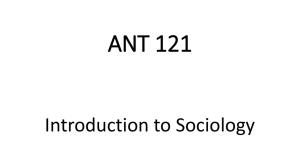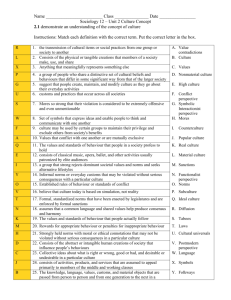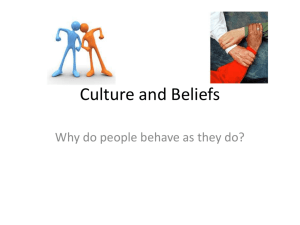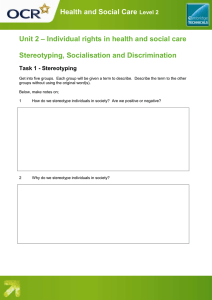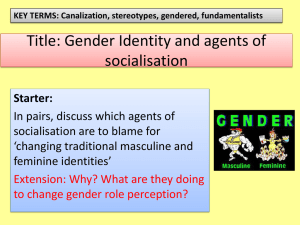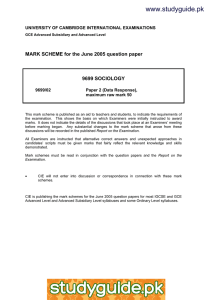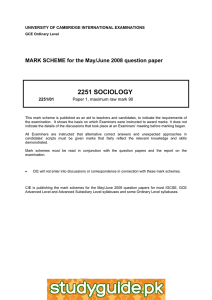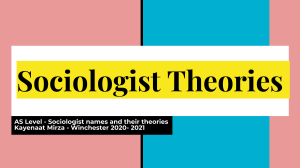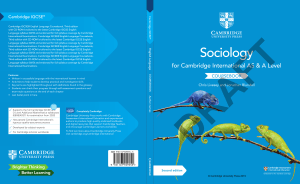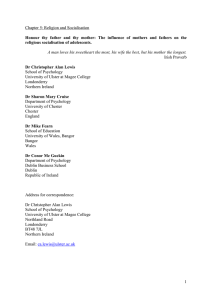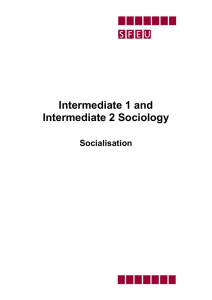Sociology
advertisement
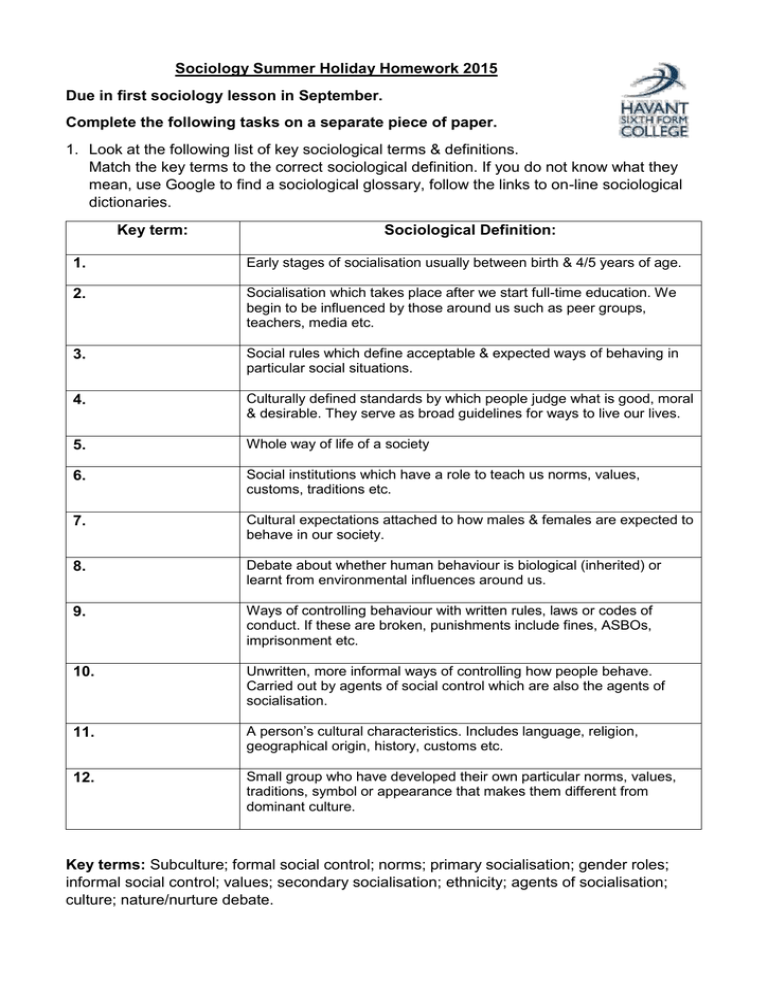
Sociology Summer Holiday Homework 2015 Due in first sociology lesson in September. Complete the following tasks on a separate piece of paper. 1. Look at the following list of key sociological terms & definitions. Match the key terms to the correct sociological definition. If you do not know what they mean, use Google to find a sociological glossary, follow the links to on-line sociological dictionaries. Key term: Sociological Definition: 1. Early stages of socialisation usually between birth & 4/5 years of age. 2. Socialisation which takes place after we start full-time education. We begin to be influenced by those around us such as peer groups, teachers, media etc. 3. Social rules which define acceptable & expected ways of behaving in particular social situations. 4. Culturally defined standards by which people judge what is good, moral & desirable. They serve as broad guidelines for ways to live our lives. 5. Whole way of life of a society 6. Social institutions which have a role to teach us norms, values, customs, traditions etc. 7. Cultural expectations attached to how males & females are expected to behave in our society. 8. Debate about whether human behaviour is biological (inherited) or learnt from environmental influences around us. 9. Ways of controlling behaviour with written rules, laws or codes of conduct. If these are broken, punishments include fines, ASBOs, imprisonment etc. 10. Unwritten, more informal ways of controlling how people behave. Carried out by agents of social control which are also the agents of socialisation. 11. A person’s cultural characteristics. Includes language, religion, geographical origin, history, customs etc. 12. Small group who have developed their own particular norms, values, traditions, symbol or appearance that makes them different from dominant culture. Key terms: Subculture; formal social control; norms; primary socialisation; gender roles; informal social control; values; secondary socialisation; ethnicity; agents of socialisation; culture; nature/nurture debate. 2. Identify 2 important values in Britain today and the norms relating to these values. Suggest ways in which these norms are enforced. 3. How much of our behaviour is moulded by social forces beyond our control? Identify 5 factors which have contributed to the way you are now and which stop you from behaving in any way you like. You might consider factors like the influences of your parents, family background, income, the mass media, experiences at school, your friendship groups and so on. 4. Imagine that you were creating an ideal society from scratch. Plan how you would organise it, with particular reference to the following issues: The care and socialisation of children The passing on of society’s knowledge and skills from one generation to the next. The production of food and other goods needed for survival. How you would allocate food and other goods to members of society. The establishment and enforcement of rules of behaviour. How would you deal with people who didn’t conform to social rules. How would you coordinate things and resolve disputes between members of society. 5. How is your ideal society similar to, or different from, how contemporary Britain is organised now? How would you explain these differences? Note: Answers for questions 2 – 5 should be approximately 500 – 600 words.
